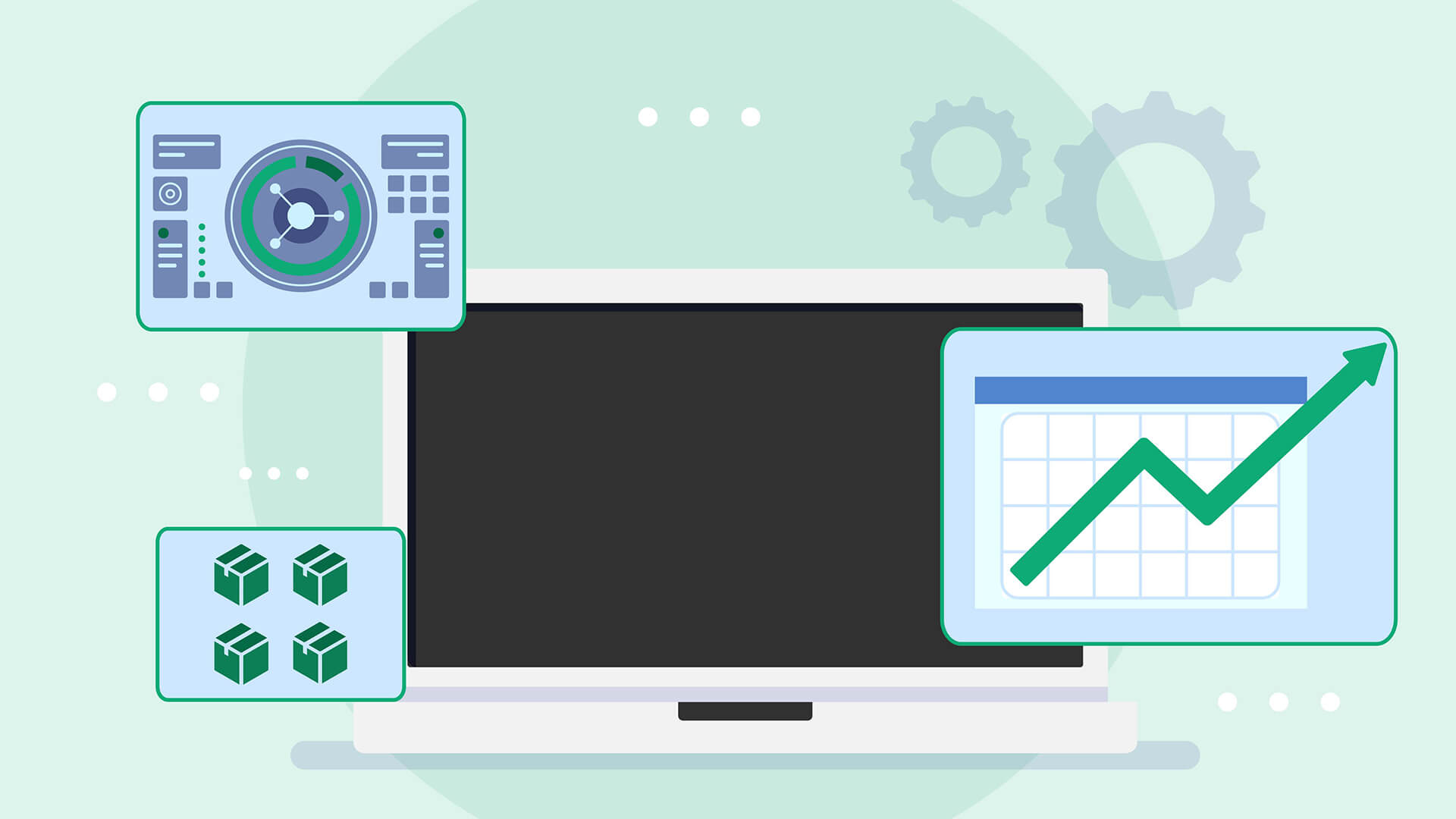When a business grows rapidly, it eventually reaches a point where managing the business data in spreadsheets will no longer cut it. This is where an ERP comes in. ERP systems help a business collect and organize information to improve operations effectively while a business expands.
Even though many professionals have heard about enterprise resource planning software, the concept of it may not be straightforward for everyone. Here, we’ll expand on what an ERP is, how it works, and how it can benefit your business.
What is an ERP System?
ERP is short for enterprise resource planning. It’s an application or system that automates business processes and offers comprehensive insights and reports. All your business data and inputs from different departments, such as accounting, sales, marketing, and human resources, are collected and stored in a central database.
With all the necessary information collected into a central database, business leaders have cross-departmental visibility that allows them to analyze different scenarios. This allows leaders to get an overall view of how the business operations run on a daily basis.
ERP systems are tailored to the needs of the business, making it scalable and flexible, and ERP systems can be configured to meet the needs of big and small businesses alike.
Ideally, ERP software allows a business to bring all the data into one central database and unify decision-making by people across the organization.
Why is ERP Essential for Growing Businesses?
ERP systems help leaders build more efficient core business processes, reallocate resources and financial capital, and increase quality and performance. A good ERP also helps business leaders spend less time digging for data. In short, ERPs can enable the effective scalability of a business.
An ERP is also an asset for planning and coordinating day-to-day work. For instance, employees can see available inventory and detailed customer orders, and compare them to supplier purchase orders for better real-time inventory allocation and purchasing decisions. Having easy access to this information allows them to plan accordingly and make adjustments when needed without as much intervention from management. In this way, ERP systems improve overall collaboration and communication, as workers can check the status of other departments to make their own decisions.
In this age of data-driven decision-making, an ERP system is a comprehensive source of data that provides analytics and reports in real-time, resulting in improved quality of performance in all areas. When implemented effectively, it provides business cost savings and productivity improvements – leading to greater profitability at scale.
How Can an ERP Improve My Business?
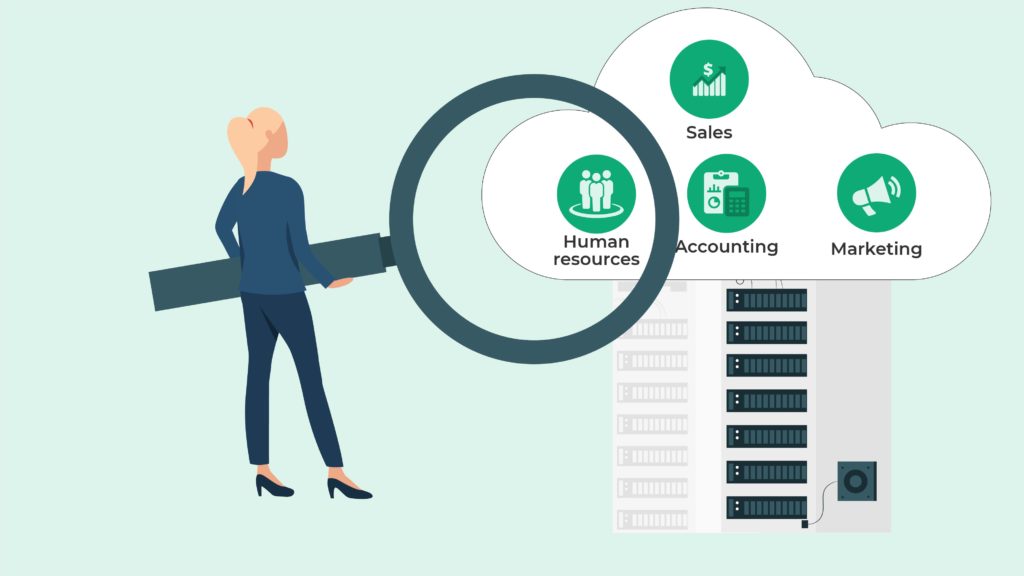
Simple, it highlights areas with room for improvement by making them more visible and easily recognizable. An ERP system brings all the information into one place, allowing workers ready access to more data and automating standard functions, so teams are more likely to spot problems and adjust to changes quicker than without an ERP. For instance, an ERP can help employees rapidly see if a shipment from a supplier is late through automated processes, allowing them to make adjustments accordingly to maintain high customer satisfaction.
Additionally, an ERP system allows business leaders to determine possible opportunities for expansion. Executives focus on outcomes: they use information to increase efficiency, reduce costs, respond to consumer needs, and adjust to market conditions. By having useful information readily available, they can make decisions much faster.
ERPs also help by automating error-prone tasks, such as account reconciliations, billing, or order processing. By storing data and enabling easy identification of problems and possibilities, an ERP helps run and improve daily operations processes while providing management with a birds-eye view of the company.
Indisputable Business Upsides of Using Cloud-Based Enterprise Resource Planning Systems
In addition to helping improve businesses, as already noted, an ERP system provides a few additional benefits when implemented in the cloud.
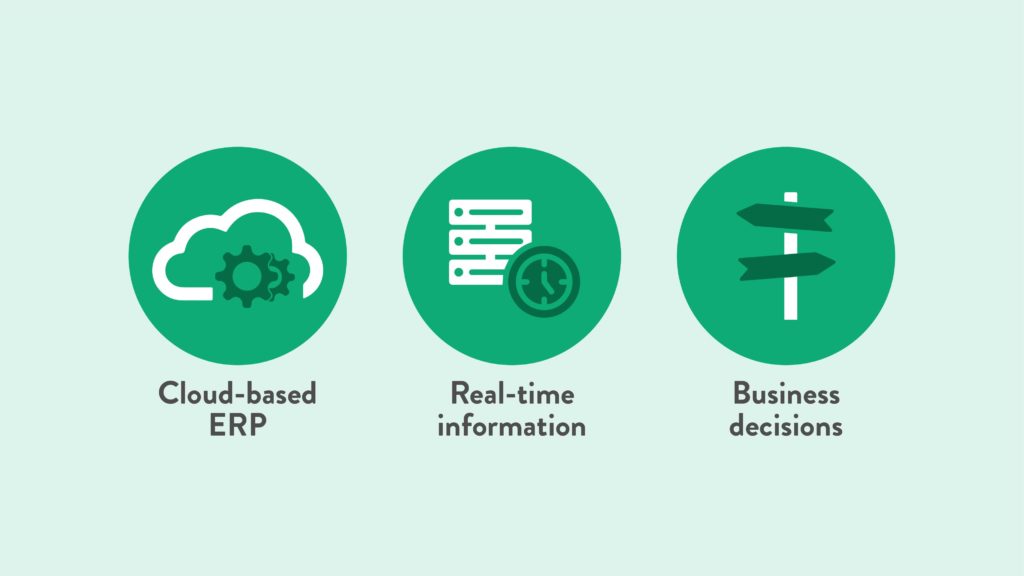
Access Data From Anywhere, Anytime
There is no need to shuffle through piles of papers or endless spreadsheets: by using a cloud-based ERP, employees are able to access data from anywhere. And best of all, all the data is available in the same place.
Real-Time Information
Cloud-based enterprise resource planning systems update whenever someone adds or sends information to the system. For instance, when an order is placed, a supplier has delivered an order, or when an email notification is sent out. In other words, all the information is up-to-date and available as soon as it’s entered into the system.
Accurate Business Decisions Based on the Same Data
When all the information is in the same place, the decision-makers are able to view accurate information in real-time. There is no duplicate content or out-of-date information. All business decisions are based on live data, and leaders can make decisions quickly and effectively.
The Benefits of an ERP for Your Business
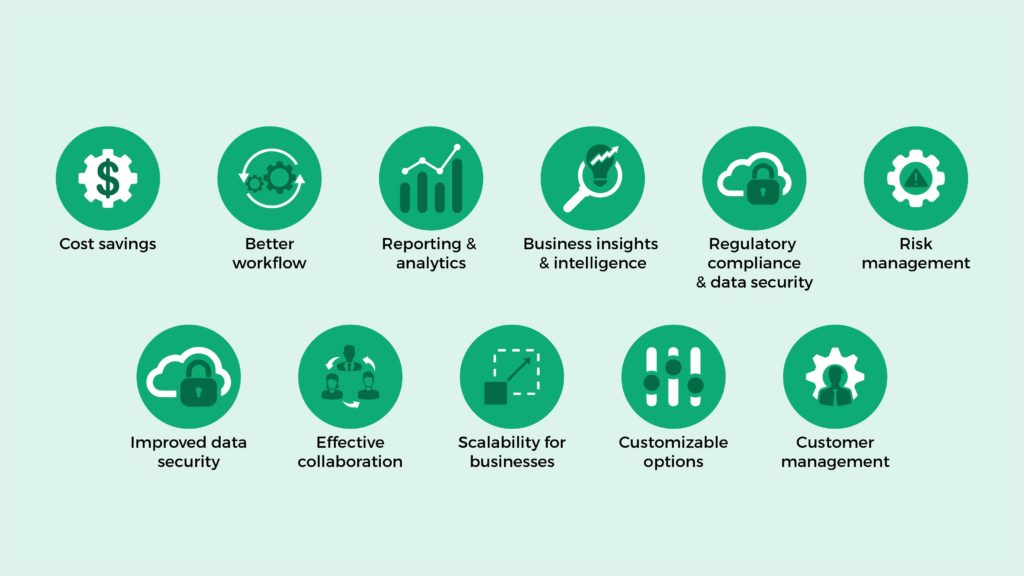
In summary, an effective ERP benefits a business by providing:
- Cost savings
- Better workflow visibility
- Comprehensive reporting and analytics
- Thorough business insights and intelligence
- Easier regulatory compliance and data security
- Better risk management
- Improved data security
- Effective collaboration
- Scalability for businesses
- Customizable options
- Effective customer management
Implementation Hurdles of ERP Systems
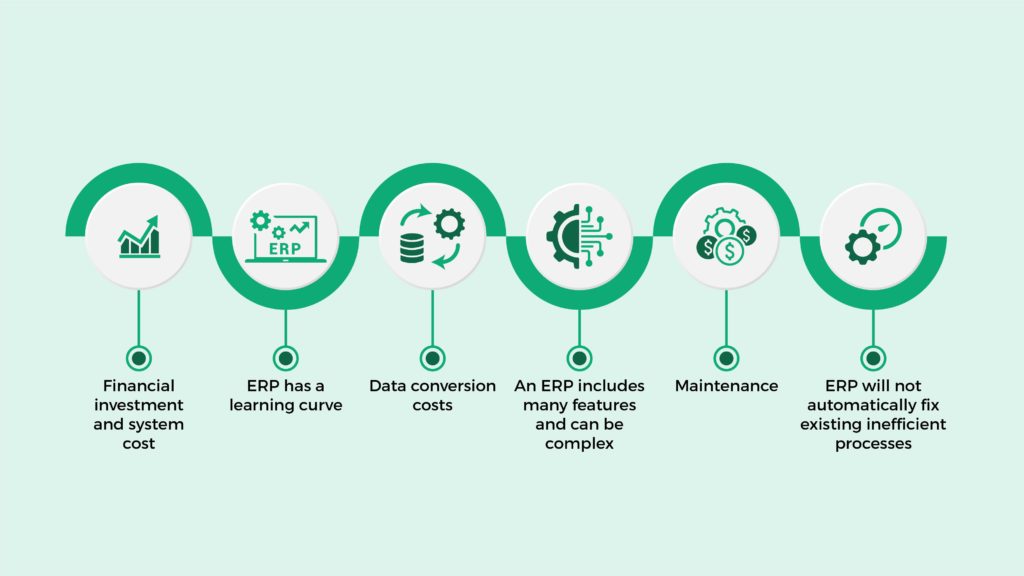
While ERP systems can offer significant value for businesses, oftentimes there are large hurdles to implementation. These can include:
- Financial investment and system cost
- ERP has a learning curve
- Data conversion costs
- An ERP includes many features and can be complex
- Maintenance
- ERP will not automatically fix existing inefficient processes
With 10X ERP, we’ve focused on reducing those hurdles as much as possible to allow for greater success in implementation. You can find more on what we’ve done here.
Executive Summary
An ERP is an essential tool for growing businesses that include multiple departments. No matter the size of the business, an enterprise ERP should be robust enough to handle all your day-to-day operations, and flexible enough to adjust to your future business needs.
ERP systems can provide a business with excellent cost savings and improved workflow by increasing efficiency within the company as all the information is brought together in one place. While implementing an ERP has some hurdles, the advantages of a successful launch outweigh the disadvantages in almost any growing business.
Learn more about 10X ERP and how we’ve modernized the entire process by visiting us at www.10xerp.com.
